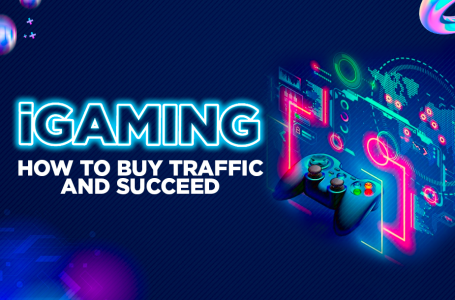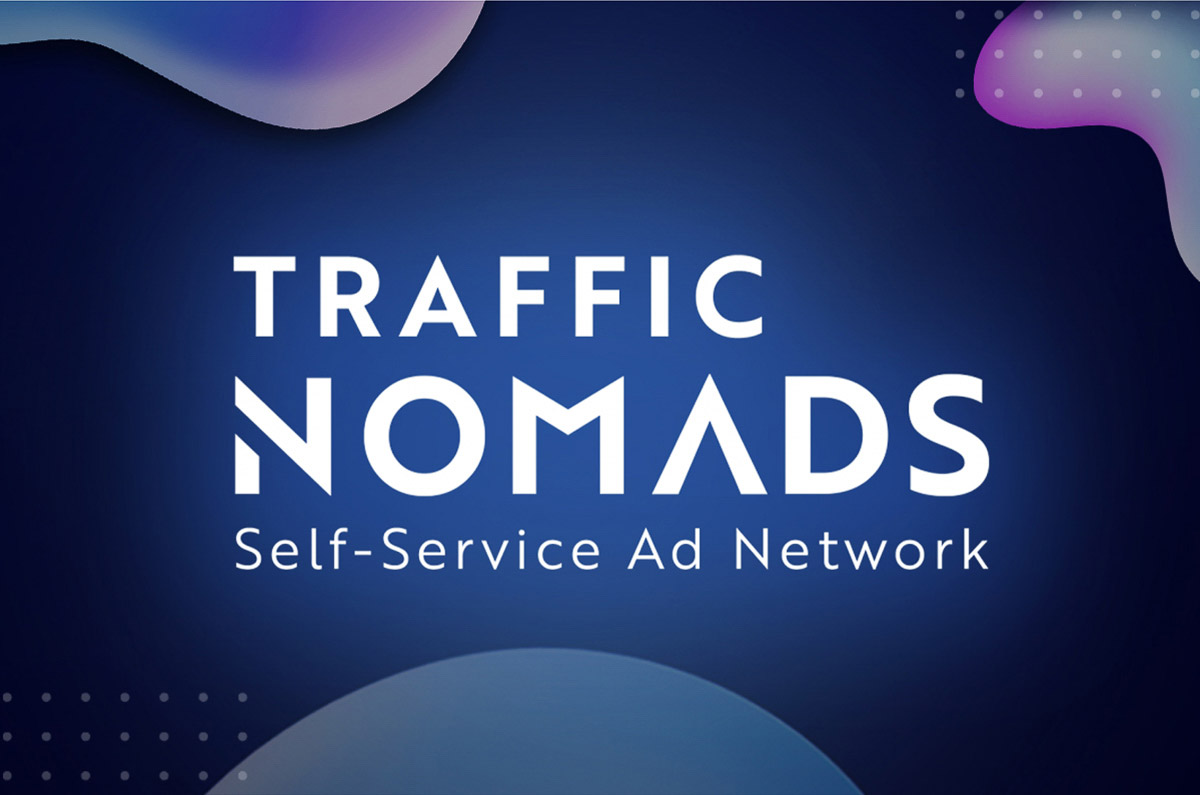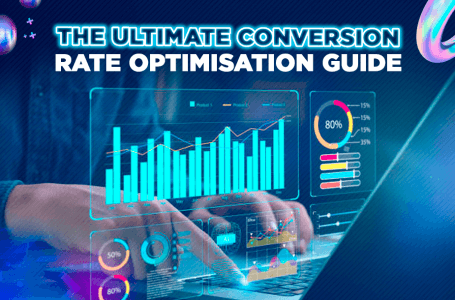
In today’s digital world, having a strong online presence is key for businesses to succeed. That’s where search engine optimization (SEO) comes in. If you want to learn SEO and make the most of it, this guide is for you.
Whether you’re experienced or new to SEO, this guide will give you the tools and strategies you need to rank higher in search engines. We’ll cover everything from keyword research to optimizing your website’s structure and content, step by step.
This guide is not just about theory—it’s a practical plan to help you apply your SEO knowledge. You’ll learn effective ways to increase website traffic, improve user experience, and boost conversions.
SEO is always changing, so it’s important to keep up with the latest trends. Our guide will help you build a strong foundation and stay adaptable to future changes in the SEO world.
What is SEO?
Search Engine Optimization (SEO) is the process of optimizing your website and its content to improve its visibility and ranking in search engine results pages (SERPs). The ultimate goal of SEO is to drive more organic (non-paid) traffic to your website, which can lead to increased brand awareness, higher conversion rates, and ultimately, business growth.
At its core, SEO involves understanding how search engines like Google, Bing, and Yahoo work, and then using that knowledge to make your website more appealing and relevant to these search engines. This includes optimizing your website’s structure, content, and other elements to ensure that it is easily crawled and indexed by search engines, and that it provides the most relevant and valuable information to users searching for specific keywords or phrases.
Effective SEO can help your website rank higher in SERPs, which can lead to increased visibility, more website visits, and ultimately, more opportunities to convert those visitors into customers or leads. By implementing a SEO strategy, you can ensure that your website is positioned to be found by the people who are most likely to be interested in your products or services.
Why is SEO important?
Having a strong online presence is essential for businesses of all sizes. Consumers increasingly turn to search engines like Google to find information, products, and services, and if your website is not visible in the search results, you’re missing out on a significant opportunity to reach potential customers.
SEO is important for several key reasons:
- Increased visibility and traffic: By optimizing your website for search engines, you can improve its ranking in SERPs, which can lead to more website visits and increased visibility for your brand. This, in turn, can lead to more opportunities to convert those visitors into customers or leads.
- Improved user experience: Effective SEO involves optimizing your website’s structure, content, and navigation to provide a better user experience. This can lead to increased engagement, lower bounce rates, and higher conversion rates.
- Competitive advantage: In many industries, SEO is a critical component of a successful digital marketing strategy. By investing in SEO, you can gain a competitive advantage over businesses that are not prioritizing their online presence.
- Long-term sustainability: Unlike paid advertising, which requires ongoing investment, SEO can provide long-term, sustainable results. By building a strong foundation of high-quality content and optimizing your website for search engines, you can continue to take the benefits of your efforts for years to come.
- Cost-effectiveness: Compared to paid advertising, SEO can be a more cost-effective way to drive traffic to your website. While it may require an initial investment of time and resources, the long-term benefits can far outweigh the costs.
Overall, SEO is a critical component of any digital marketing strategy, and businesses that prioritize it are more likely to succeed in the long-term.
How search engines work
To understand the importance of SEO, it’s essential to have a basic understanding of how search engines work. Search engines are complex algorithms designed to crawl the internet, index the content they find, and then provide users with the most relevant and valuable information in response to their queries.
The process of how search engines work can be broken down into three main steps:
- Crawling: Search engines use web crawlers, also known as “bots” or “spiders,” to continuously explore the internet, following links and discovering new web pages. These crawlers gather information about the content, structure, and other elements of each page they encounter.
- Indexing: Once a web page has been crawled, the search engine will add it to its index, a massive database that stores information about the content, structure, and other characteristics of each page. This index is what the search engine uses to match user queries with relevant web pages.
- Ranking: When a user enters a search query, the search engine’s algorithm will analyze the index to identify the web pages that are most relevant and valuable to the user’s query. These pages are then ranked based on a variety of factors, such as the relevance and quality of the content, the website’s authority and trustworthiness, and the user’s search history and location.
Understanding how search engines work is crucial for effective SEO. By optimizing your website and its content to align with the way search engines operate, you can improve your chances of ranking higher in SERPs and driving more organic traffic to your site.
The different types of SEO
Search engine optimization is a multifaceted discipline that encompasses a variety of techniques and strategies. To effectively implement an SEO plan, it’s important to understand the different types of SEO and how they can be leveraged to achieve your goals. The main types of SEO are:
- On-page SEO: This refers to the optimization of the content and structure of your website, including elements such as page titles, meta descriptions, header tags, image alt text, and internal linking. On-page SEO aims to make your website more appealing and relevant to search engines, which can lead to higher rankings and increased visibility.
- Off-page SEO: This involves activities that take place outside of your website, such as link building, social media engagement, and guest posting. Off-page SEO focuses on building your website’s authority and reputation, which can also contribute to higher search engine rankings.
- Technical SEO: This aspect of SEO focuses on the underlying technical elements of your website, such as site speed, mobile responsiveness, and website structure. Technical SEO ensures that your website is optimized for search engine crawlers and provides a positive user experience.
- Local SEO: This type of SEO is specifically targeted at improving the visibility of local businesses in search engine results. It involves optimizing your website and online presence for location-based searches, such as “best pizza near me.”
- Ecommerce SEO: This specialized form of SEO is tailored to the unique needs of online retailers, including product page optimization, category page optimization, and integrating SEO with your overall ecommerce strategy.
- Content SEO: This focuses on creating high-quality, relevant, and engaging content that resonates with your target audience and helps to improve your website’s search engine rankings.
By understanding the different types of SEO and how they work together, you can develop a strategy that addresses the various aspects of your online presence and helps you achieve your desired results.
On-page optimization techniques
On-page optimization is a crucial component of any effective SEO strategy, as it directly influences how search engines perceive and rank your website. By optimizing the various elements of your web pages, you can improve their relevance, authority, and overall performance in search engine results. Here are some key on-page optimization techniques to consider:
- Keyword research and targeting: Identifying the right keywords and incorporating them strategically throughout your content is essential for on-page optimization. Conduct thorough keyword research to understand the search terms your target audience is using, and then integrate these keywords into your page titles, meta descriptions, headings, and body content.
- Title tag optimization: The title tag is one of the most important on-page elements, as it serves as the main headline that appears in search engine results. Ensure that your title tags are concise, compelling, and accurately reflect the content of the page.
- Meta description optimization: The meta description is the short summary that appears beneath the page title in search results. Craft engaging and informative meta descriptions that encourage users to click through to your website.
- Header tag optimization: Structuring your content with proper header tags (H1, H2, H3, etc.) helps search engines understand the hierarchy and organization of your content, which can improve its relevance and visibility.
- Image optimization: Optimizing your images by adding relevant alt text, file names, and captions can help search engines better understand the content of your pages and improve their visibility in image search results.
- Internal linking: Establishing a clear and logical internal linking structure on your website helps search engines understand the relationships between your pages and can also improve the user experience.
- Mobile optimization: Ensuring that your website is mobile-friendly and provides a seamless user experience on various devices is crucial, as Google now prioritizes mobile-friendly websites in its search rankings.
- Content quality and relevance: Producing high-quality, informative, and relevant content that addresses the needs and queries of your target audience is essential for on-page optimization. Search engines favor websites that provide value to their users.
Off-page optimization techniques
While on-page optimization focuses on the elements within your website, off-page optimization involves activities and strategies that take place outside of your domain. These off-page factors can significantly influence your website’s authority, relevance, and overall search engine rankings. Here are some key off-page optimization techniques to consider:
- Link building: Acquiring high-quality, relevant backlinks from reputable websites is one of the most important off-page SEO strategies. Focus on building a diverse portfolio of backlinks from authoritative sources, such as industry publications, influential blogs, and respected directories.
- Guest posting: Contributing guest articles to relevant, high-authority websites can help you build your brand’s reputation, establish your expertise, and earn valuable backlinks.
- Social media engagement: Actively participating in social media platforms, sharing your content, and engaging with your target audience can signal to search engines that your website is relevant and valuable.
- Online directory listings: Ensuring that your business is listed in relevant online directories, such as Google My Business, Bing Places, and industry-specific directories, can improve your local search visibility and credibility.
- Influencer outreach: Collaborating with industry influencers, experts, or thought leaders can help you reach new audiences, earn backlinks, and enhance your website’s authority.
- Citation building: Maintaining consistent and accurate citations (mentions of your business name, address, and phone number) across various online directories and listings can improve your local search rankings.
- Reputation management: Monitoring and addressing online reviews, comments, and mentions of your brand can help you maintain a positive online reputation, which can positively impact your search engine visibility.
- Broken link building: Identifying and offering to replace broken links on other websites with links to your own high-quality, relevant content can be an effective way to earn backlinks.
Keyword research and targeting
Keyword research and targeting are fundamental components of any successful SEO strategy. Identifying the right keywords and incorporating them effectively throughout your website and content can significantly improve your search engine rankings and drive more qualified traffic to your business. Here’s a closer look at the process of keyword research and targeting:
- Keyword research: Begin by conducting thorough keyword research to understand the search terms and phrases that your target audience is using to find products, services, or information related to your business. This can involve using keyword research tools, analyzing your competitors, and considering the intent behind the searches.
- Keyword categorization: Once you’ve identified a list of relevant keywords, organize them into different categories based on factors such as search volume, competition, and relevance to your business. This will help you prioritize which keywords to focus on and develop targeted content strategies.
- Keyword targeting: Incorporate your target keywords strategically throughout your website, including in page titles, meta descriptions, header tags, body content, and image alt text. Avoid keyword stuffing, and instead, focus on creating natural, informative, and engaging content that resonates with your audience.
- Long-tail keywords: In addition to targeting broad, high-volume keywords, consider incorporating long-tail keywords, which are more specific and often less competitive. Long-tail keywords can be valuable for attracting users with a clear intent and can lead to higher conversion rates.
- Keyword mapping: Develop a keyword mapping strategy that aligns your target keywords with specific pages or content on your website. This will help ensure that your content is optimized for the right search queries and that users can easily find the information they’re looking for.
- Ongoing keyword research and optimization: Continuously monitor your website’s performance, track your keyword rankings, and adjust your keyword strategy as needed. As search engine algorithms and user behavior evolve, it’s important to stay up-to-date with the latest trends and adapt your keyword targeting accordingly.
Measuring the success of your SEO efforts is crucial for understanding the impact of your strategies and making informed decisions about future optimization. By tracking and analyzing key metrics, you can identify areas for improvement, allocate resources more effectively, and demonstrate the value of your SEO initiatives to stakeholders.
Measuring the success of your SEO efforts
- Organic traffic: One of the primary goals of SEO is to drive more organic (non-paid) traffic to your website. Monitor your website’s organic traffic using tools like Google Analytics to track trends, identify high-performing pages, and understand the impact of your SEO strategies.
- Keyword rankings: Tracking your website’s rankings for your target keywords is a direct indicator of the effectiveness of your SEO efforts. Use rank tracking tools to monitor your position in search engine results pages (SERPs) and identify opportunities for improvement.
- Conversion rate: Ultimately, the goal of SEO is to drive more qualified traffic that can be converted into leads or sales. Monitor your website’s conversion rate, which can be measured by tracking goals or ecommerce transactions in Google Analytics.
- Bounce rate and time on page: These metrics can provide valuable insights into the user experience and engagement on your website. A high bounce rate or low time on page may indicate that your content or website structure needs improvement.
- Backlink profile: Monitoring the quality and quantity of your website’s backlinks can help you understand the effectiveness of your off-page optimization efforts. Tools like Ahrefs and Moz can provide detailed insights into your backlink profile.
- Technical site health: Regularly auditing your website’s technical health, including factors like site speed, mobile responsiveness, and crawlability, can help you identify and address any issues that may be impacting your SEO performance.
- Content engagement: Analyze the performance of your website’s content, such as page views, time on page, and social shares, to understand which topics and formats are resonating with your audience.
- Competitor analysis: Monitoring the SEO performance of your competitors can provide valuable insights into industry trends, best practices, and opportunities for differentiation.
Conclusion
In short, SEO is a complex and constantly changing field that needs a well-thought-out plan. By learning the basics of how search engines work, the types of SEO, and the different ways to optimize your site, you can create a winning SEO strategy. This will bring more relevant visitors to your website and help your business grow.

































